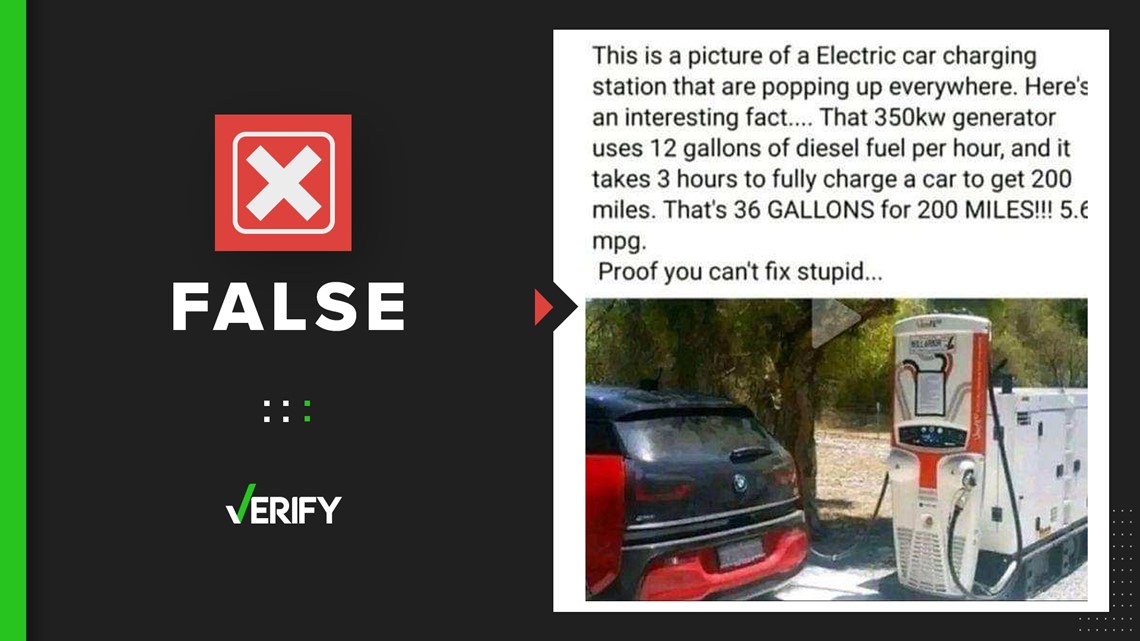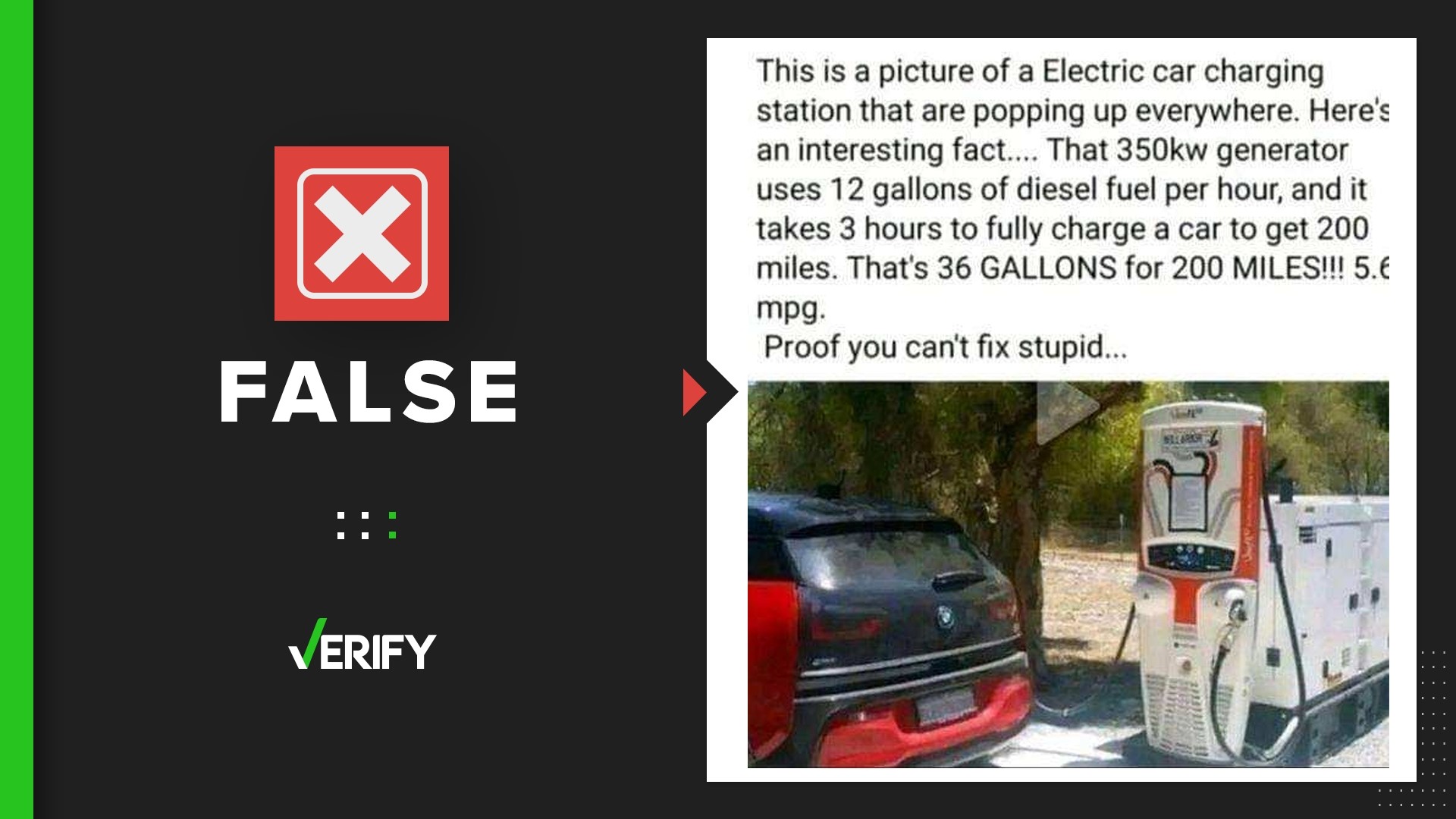Electric vehicles have soared in popularity in recent years, offering drivers a way to get around that doesn’t depend on gasoline.
But some posts on social media claim those drivers are still burning fuel by using diesel generators to charge their cars.
One photo shared across social media claims to show an EV hooked up to a charger running on a “350 kilowatt generator [using] 12 gallons of diesel fuel per hour.” It says this kind of charging station is “popping up everywhere.”


VERIFY reader Jon asked us if there was any truth to these claims.
THE QUESTION
Are diesel generators for charging electric vehicles popping up everywhere?
THE SOURCES
The Driven, an Australian news site focused on electric vehicles
THE ANSWER
No, diesel generators for charging electric vehicles aren't popping up everywhere. The electric vehicle charging network does not rely on diesel or gas generators at all.
WHAT WE FOUND
The electric vehicle charging network is connected to the electrical grid, which gets its power from a variety of sources that vary by location.
The photo shared in the social media post does not show a commercially available charging station for electric vehicles. It’s actually a photo from six years ago of an experiment conducted by a retired engineer in Western Australia.
The photo was featured in a trade publication article in 2018 in which the engineer, Jon Edwards, explains he wanted to test a possible stopgap measure for charging EVs in the vast deserts of Western Australia, which is one of the most isolated places in the world.
He invented a machine he called the “Charge Pod” by taking a normal EV charging device and bolting it to a diesel generator.
Edwards explained that eventually he expected such a machine could be replaced by a solar-powered charging station, especially as charging stations became more prolific and electric cars improved their range.
Although Edwards allowed friends to try out the device, it was located on his private property – not a publicly available charging station – and VERIFY found no evidence of his invention being replicated at scale.
Could diesel power charge an EV?
The social media post also made several claims about the efficiency of charging an electric vehicle with a diesel generator.
It said a “350 kW generator uses 12 gallons of diesel fuel per hour, and it takes 3 hours to fully charge a car to get 200 miles,” requiring 36 gallons of fuel to fully charge the vehicle – a fuel efficiency of just 5.6 miles per gallon.
Those claims are inaccurate.
350 kilowatts is the maximum output you’ll find at high speed charging stations, and many EVs can only accept a portion of that power. For example, Teslas max out at 250 kW on their Superchargers.
At that output, most EVs – including popular models like the Tesla Model Y and high performance models like the Porsche Taycan – take just 15 to 25 minutes to charge up, not three hours. Those cars can then go 200 miles or more.
Assuming you’re running the generator at a full load, that means it would take just over 8 gallons of diesel to go 200 miles, not 36 gallons like the post claims.
Calculated as miles per gallon, that’s actually about on par with an average gas car in America, with both clocking in around 24 mpg.
Diesel does create more emissions per gallon than gasoline, so powering your EV with a diesel generator would still be worse for the environment than just driving a gas car. But, outside of isolated experiments, that isn’t happening.

